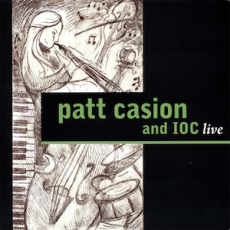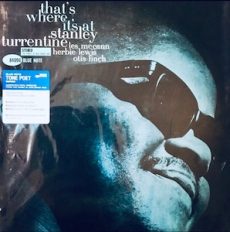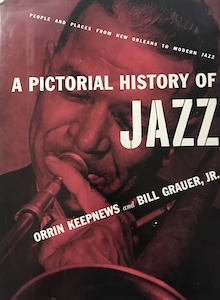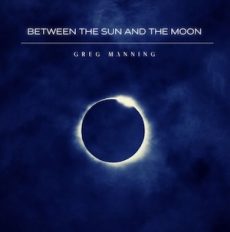
Daily Dose Of Jazz…
Patt Casion was born Patt Spears on December 31, 1963 in the Monterey Peninsula, California and grew up in Marina where she learned to play music while at church. It was there she started building her musical chops that led to her attending Berklee College of Music in Boston, Massachusetts, where one of her classmates was Lalah Hathaway, daughter of Donny Hathaway.
Opportunity gave way to her playing local gigs and recording two albums and took her to many places around the world, one was as a member of the Church of God Christ International Orchestra based in Memphis, Tennessee.
Soprano saxophonist Patt Casion, who after a two year battle with cancer, died on December 31, 2017 at Community Hospital of the Monterey Peninsula at the age of 55.
More Posts: bandleader,history,instrumental,jazz,music,saxophone

Daily Dose Of Jazz…
Anna Maria Jopek was born on December 14, 1970 in Warsaw, Poland, the daughter of Mazowsze singer Stanisław Jopek, known as the First Coachman of Poland.
Representing her country in the 1997 Eurovision Song Contest with the song Ale jestem, she finished 11th out of 25 competitors. By 2002 she was collaborating on an album with jazz guitarist Pat Metheny. She has received numerous awards for her music, including Michel Legrand’s Personal Award in Vitebsk, Belarus in 1994.
Anna has sung with Polish musicians Marek Grechuta, Jeremi Przybora and Wojciech Młynarski as well as abroad with Youssu’n Dour, Bobby McFerrin, Ivan Linz, Branford Marsalis, Nigel Kennedy, Richard Bona, Oscar Castro-Neves, Makoto Ozone, Sting and Gonzalo Rubalcaba among others.
In 2015, Jopek received the Knight’s Cross Order of Polonia Restituta conferred by President Bronisław Komorowski for promoting Polish art worldwide.
Vocalist, songwriter and improviser Anna Maria Jopek, who has recorded twelve studio and two live albums as a leader, continues to pursue beyond the boundaries of her musical range.
More Posts: bandleader,history,improviser,instrumental,jazz,music,songwriter,vocal

Requisites
That’s Where It’s At ~ Stanley Turrentine | By Eddie Carter
Stanley Turrentine was an exceptionally prolific tenor saxophonist who garnered numerous admirers throughout his career. He is widely recognized as a key contributor to the evolution of blues-inspired hard bop and soul jazz, as well as a trailblazer in smooth jazz. This morning’s featured album submitted for your approval is a 1962 release, That’s Where It’s At (Blue Note BLP 4096/BST 84096). This record was his second collaboration with pianist Les McCann and bassist Herbie Lewis, coming on the heels of their live performance at the Village Gate just a week prior. Drummer Otis Finch completes this dynamic quartet. The copy in my library is the 2020 Blue Note Tone Poet Series stereo reissue, which maintains the original catalog number.
The album opener, Smile, Stacey by Les McCann, begins with a brief dialogue between Stanley and Les that leads into the foursome’s theme. Stanley takes charge first, delivering a driving energy and brisk articulation. Les then swings in for the second interpretation. Herbie takes a short, sharply executed walk next, which Les finishes, then
Stanley and Les share a brief exchange with Otis before the ensemble’s soft fadeout. The quartet then cools down for Soft Pedal Blues by Stanley Turrentine, which starts with the trio’s slow-burning, soulful intro. Turrentine’s notes are placed with thoughtful precision during the melody and opening statement. McCann caresses each note of the second solo, and Turrentine delicately shapes a final comment into the theme’s restatement and slow fade.
Pia by Les McCann begins with the quartet easing into a mellow groove as the melody is introduced. Les initiates the solos with some good down-home cooking. Stanley steps in next, maintaining the calm atmosphere with a thoughtful message before the ensemble reunites for the closing chorus, which gently fades away. We’ll See Yaw’ll After While, Ya Heah by Les McCann is the pianist’s lively composition with a distinctly Southern flavor. After the quartet’s theme gets things off to a good start, Turrentine leads off the first solo, delivering each verse with precise articulation. McCann responds with a spirited interpretation that gets listeners tapping their feet and grinning along until the group’s return for the ending theme.
The tempo slows down again for Dorene, Don’t Cry, I, by Les McCann, a haunting ballad that begins with the ensemble’s beautiful melody. Stanley fully embraces the opening statement by gently attending to every note with careful lyricism and sensitivity. Les follows with something significant to say in a gorgeous performance preceding the tender reprise and close. Light Blue, by Stanley’s brother, Tommy Turrentine, brings this entertaining album to a close with a lightly swinging melody that invites listeners to sit back and enjoy the ride. McCann takes the lead with a loose, relaxed reading, then Lewis provides a few moments of pure joy. Turrentine offers the final memorable moment ahead of the group’s out chorus.
Alfred Lion produced the initial session of That’s Where It’s At, and Rudy Van Gelder was behind the dials of the recording. Joe Harley supervised the audiophile reissue, and Kevin Gray mastered the album from the original analog tapes at Cohearant Audio. The album’s sound quality is outstanding, with a stunning soundstage that transports the musicians to the sweet spot in your listening room with superb fidelity. The record was pressed on 180-gram Virgin Vinyl at RTI and is dead silent until the music begins. You’re also getting high-definition gatefold photos and superb cover packaging worthy of hanging on the wall. If you’re already a member of the Stanley Turrentine or Les McCann fan club, I highly recommend That’s Where It’s At on your next record hunt. If you aren’t already familiar with either musician, this record is an excellent introduction to their extensive discographies!
~ Les McCann Ltd. In New York (Pacific Jazz PJ-45/ST 45) – Source: Discogs.com © 2025 by Edward Thomas Carter
More Posts: choice,classic,collectible,collector,history,instrumental,jazz,music,saxophone

On The Bookshelf
A Pictorial History Of Jazz | Orrin Keepnews & Bill Grauer Jr.
A classic photographic collection documenting jazz history, particularly up to the mid-1960s, though some note its coverage of later styles is limited. Praised for its extensive and captivating black-and-white photographs, the text may be less substantial than the images and the coverage of later jazz movements is not as thorough.
The book is often described as a valuable visual reference for jazz enthusiasts, and some consider it an essential purchase, though older editions may be harder to find in good condition.
A Pictorial History Of Jazz: 1966 Crown Publishers, Inc.

Daily Dose Of Jazz…
Greg Manning was born on November 24, 1965 in Nigeria and raised in Zurich, Switzerland. While growing up he was mostly exposed to jazz by his parents. Yet, he discovered his deep love for music only after hearing Stevie Wonder’s Isn’t She Lovely. He started playing the piano at twelve and several years later moved to the United States to study piano and film scoring at Berklee College of Music in Boston, Massachusetts.
His big break came when asked to compose the music for Keep Cool, the most successful and longest running German musical. The musical led Manning back to Zurich where he continued to compose and produce for records and television.
Moving to Los Angeles, Calidornia in 2002 where his career took off. The three-time platinum producer for Universal Music Switzerland, and has had several Swiss Chart toppers since 1996. The former keyboardist and music director for Grammy Award-nominated artist Jonathan Butler, he has been the keyboardist for Mindi Abair, Gerald Albright, Will Downing, Richard Elliot, Brian McKnight, Chante Moore, and Kirk Whalum, among others.
Touring extensively for ten years throughout the U.S., Europe, South Africa, and the U.K., Greg made a conscious decision to come off the road. Not long thereafter, he started composing music for film and television. As an artist, his own music is the union of jazz, soul, and funk.
Pianist, composer Greg Manning, who operates in the soul jazz and smooth genres has never stopped composing and continues to record and perform.
More Posts: bandleader,composer,history,instrumental,jazz,music,piano




